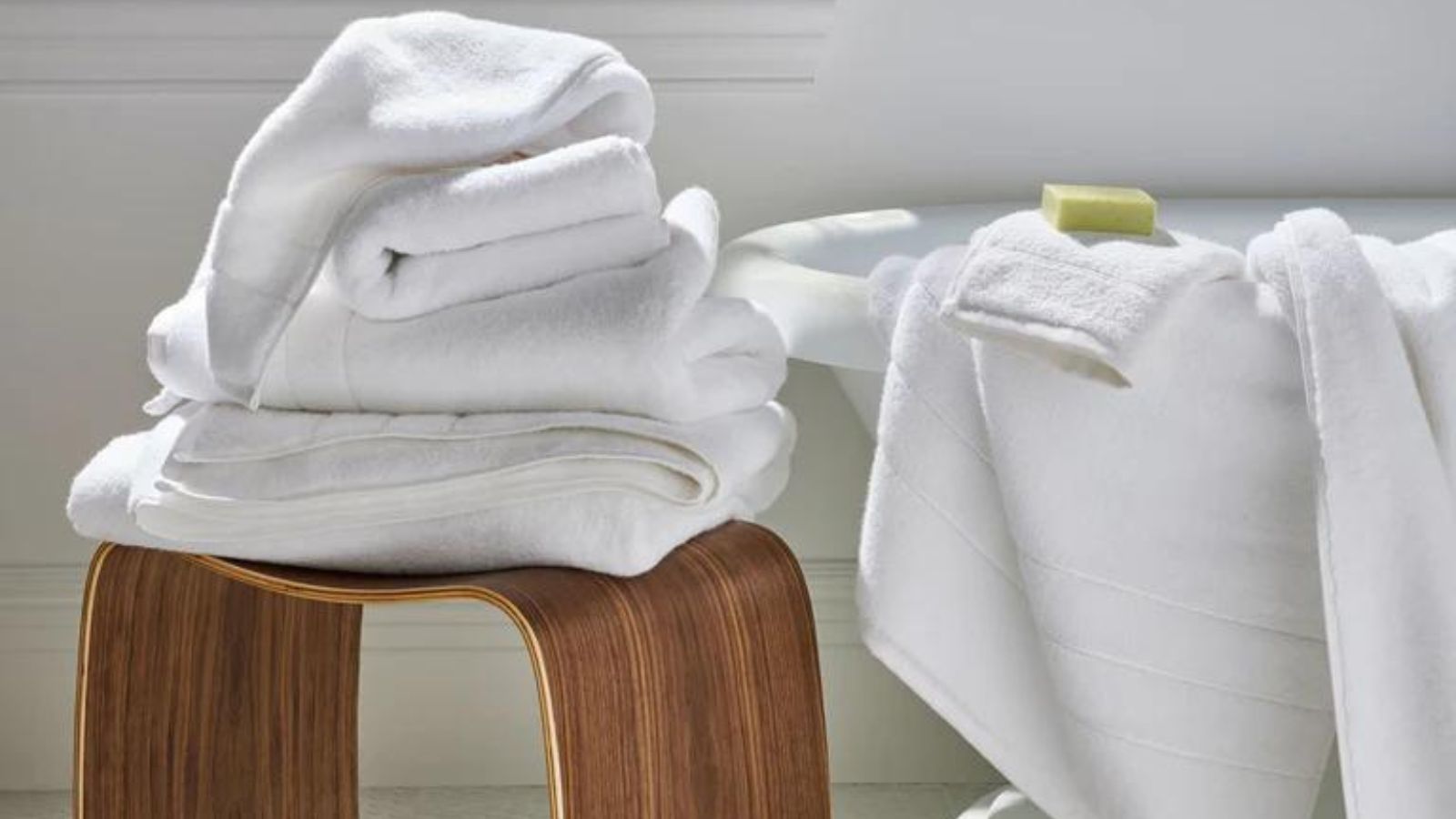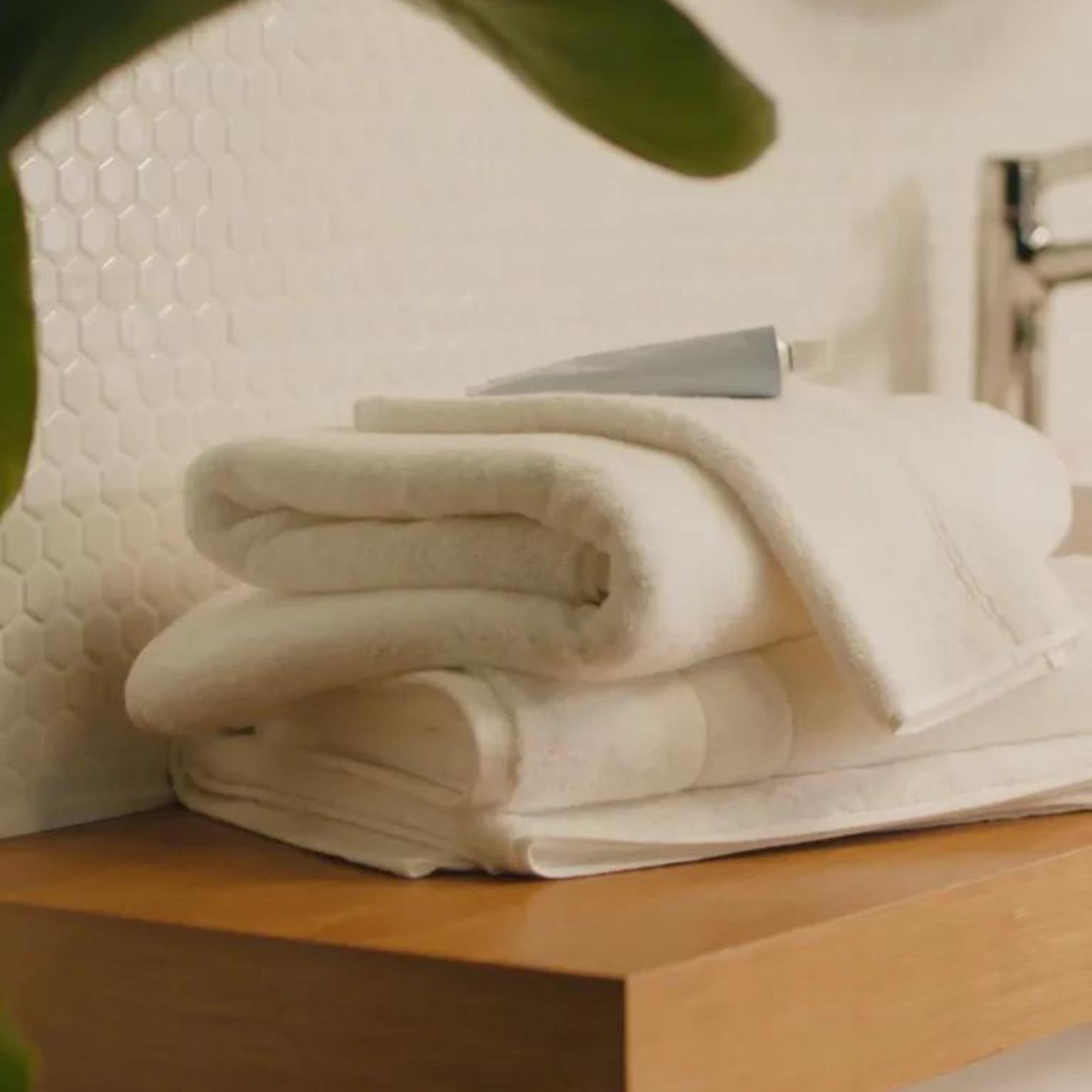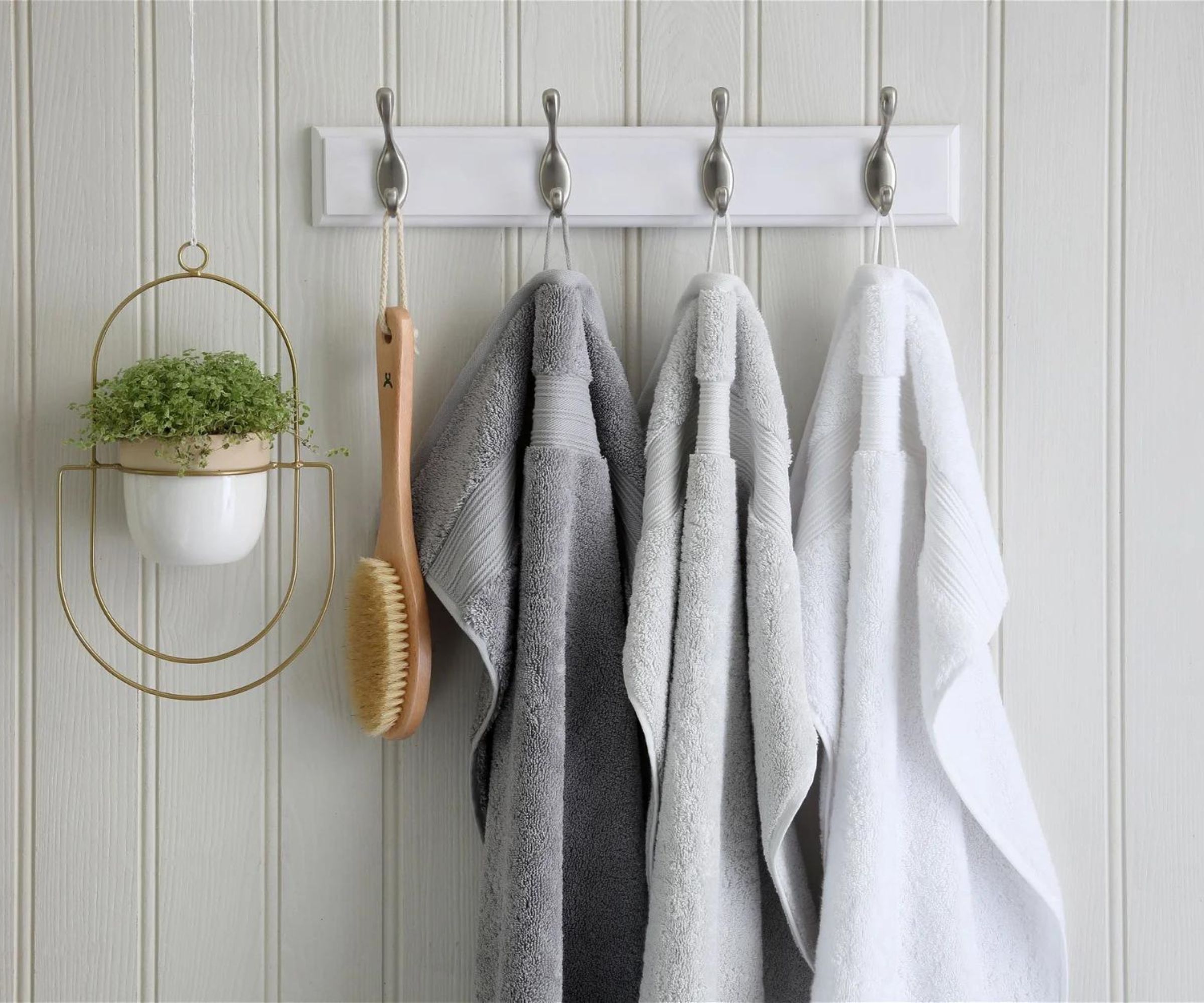
Even when we take good care of our towels, constant usage means they will eventually wear out.
While we can prolong the life of our best bath towels by washing towels correctly and storing them safely between uses, there will always come a time when they are too threadbare to be comfortable to use, or are simply unhygienic, laundry experts and dermatologists warn.
Here, they share the four signs you need to replace your towels and why a switch-up is recommended.
Signs you need to replace your towels
‘Replacing your towels regularly is crucial for maintaining good skin health,’ begins Dr. Hannah Kopelman, dermatologist at Kopelman Aesthetic Surgery. ‘Old, inefficient towels can compromise your hygiene routine, potentially leading to skin issues.’
She explains that investing in high-quality towels and using towels correctly can enhance your overall skincare regimen and ensure you’re always using clean, effective towels.
With that in mind, this is how to know if you need to upgrade and why
1. They always smell musty

If you are always trying to make towels smell fresh but they continue to have a lingering musty odor, it might be time to say goodbye suggests Dr. Hannah Kopelman, dermatologist:
‘Even after washing, if your towels have a persistent musty or sour smell, it’s a sign that bacteria and mildew have taken hold in the fibers. This can happen when towels do not dry completely between uses, providing a breeding ground for bacteria. Using such towels can lead to skin infections or exacerbate conditions like acne and eczema,’ she explains.
This can sometimes be prevented by knowing how often to wash your towels and ensuring they are hung to dry completely between uses. This will also help to get rid of musty smells in the bathroom, too.
2. Loss of Absorbency

Towels that are not absorbent are not very practical and it is a sure-fire sign that you need new ones, suggests Shaun Veran, microbiologist and COO of OURA:
‘Towels lose their absorbency for a few reasons. One of the biggest culprits is the buildup of detergent and fabric softeners. These products can leave residues on the fibers, creating a barrier that prevents the towel from soaking up water,’ he explains.
‘Another factor is mineral deposits from hard water. These minerals can cling to the towel fibers, making them stiff and less absorbent. As they build up over time, they become more difficult to remove, and they impede the towel’s absorption.
‘When your towel isn't absorbing water effectively, it might start to feel slippery instead of fluffy and dry. You might find yourself rubbing the towel over the same spot multiple times, but still not getting completely dry.’
To avoid this again in the future, do not use fabric softener on towels and wash towels separately from your clothing to avoid damaging the fibers. You might want to try washing towels with vinegar to help soften them up instead.
3. They show visible wear and tear

One of the most obvious signs you need to replace your towels is physical damage. Anything from fraying edges, thinning fabric, and visible holes are clear indicators that your towels are past their prime, says Dr. Hannah Kopelman, dermatologist. ‘Worn-out towels not only feel rough against the skin, potentially causing irritation, but they also harbor more bacteria and mold compared to newer, intact towels,’ she explains.
While any towel will eventually show signs of wear, you can prolong its life by investing in high-quality towels and learning how to store towels and linens to keep them soft and prevent extra damage between uses.
4. They have faded or gone crusty

Holes and fraying are not the only physical signs you need to replace your towels, points out Hyacinth Tucker, laundry expert and owner of The Laundry Basket. ‘As your towels get older, they can start to look dingy or change color, even after a wash. If your bright blue beach towel starts to fade and lose its color, it might be time for a new one,’ Hyacinth suggests. ‘But don't throw away the old towel! You can use it as a cleaning cloth instead.’
Besides the color, your towels might start to feel scratchy. ‘Trips to the laundry naturally break down and wear out the fibers of the towel. As they degrade, the towel starts to feel rougher and scratchy, instead of the soft and plush texture that we all want,’ adds Shaun Veran, microbiologist. ‘If your towel starts to feel like you are exfoliating more than drying off, it’s probably time to get a new one.
‘Drying off with a rough towel can be particularly harsh on the skin, especially if you have sensitive skin. The abrasive texture quickly irritates skin which is usually more delicate after a shower,’ he explains.
However, different types of fabric will give different signs of losing softness or texture so it can be helpful to know what to look for based on your material, Shaun continues. ‘Cotton fibers become more brittle and break with repeated washing and drying. This process accelerates if you use high heat to dry your cotton towels. Microfiber towels will become more stiff and start to lose their ability to absorb moisture over time. Linen towels are the most durable, but less moisture absorbent with repeated washings.’
Although there are some ways to make towels soft again, it is sometimes more efficient to simply upgrade and use the old towels for cleaning, DIY, or for pets.
FAQs
How often should you replace your towels?
It is generally a good idea to replace your towels every two to five years, depending on their quality, how often you use them, and their condition. Towels that are high quality and well-maintained will last a lot longer than a more affordable towel that might have been washed improperly, or left damp between uses.
What should I do with old towels?
When replacing your towels, your old towels can be reused around the house. Smaller towels are perfect for household cleaning, can be used for pets, or thrown in the car to be used after muddy walks or days at the beach. Larger towels are ideal for household DIY to help clean up big messes or keep a smaller area dry or clean when painting. Old towels can also be cut up to make smaller washcloths and dusting rags, or donated to local animal shelters.
When replacing your bathroom towels, be sure to follow the expert's seven essential rules for buying towels to make sure you pick up the best quality towels that are perfect for your routine and skin type. Taking your time and investing in the highest quality will ensure your towels stay their best for longer.







